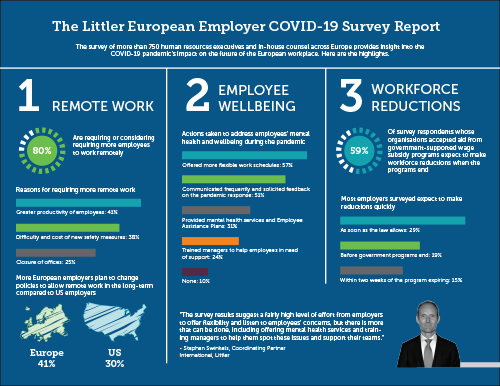Information contained in this publication is intended for informational purposes only and does not constitute legal advice or opinion, nor is it a substitute for the professional judgment of an attorney.
Government-ordered office closures that swept much of Europe early in 2020 appear to have helped convince employers across the continent that workers could be just as productive remotely as they could while gathered in offices.
That revelation could have far-reaching implications for the future of the European workplace, according to Littler’s survey of more than 750 human resources executives and in-house counsel across Europe. As the pandemic wears on, many European employers are making long-term changes to their remote work policies to provide more flexibility or even to require employees to work remotely. The survey results also reveal a growing recognition of the importance of workplace wellbeing and emerging management headaches as employees look to use remaining holiday time.
And while assistance from European governments has helped prevent widespread job losses thus far, the survey results suggest that workforce reductions could be on the horizon as wage subsidy programs wind down and the pandemic’s economic damage deepens.
The survey report covers a range of additional legal and HR matters impacting European companies, including issues specific to employers in the UK, Germany, France and Italy.








